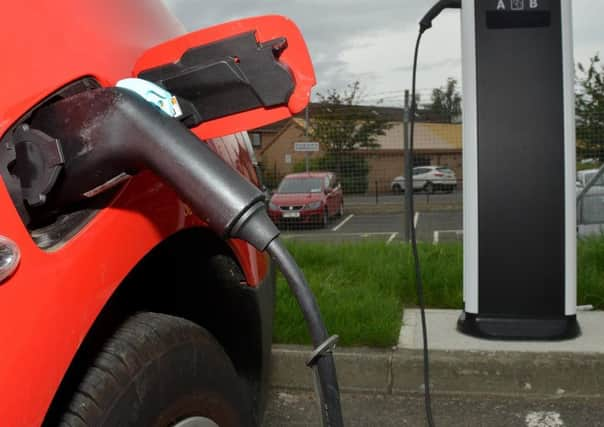Motorists stay put as green car sales hit reverse


Industry leaders expressed “grave concern” at the latest sales figures, which showed that there was a double-digit slide in the registration of new greener motors last month.
The Society of Motor Manufacturers and Traders (SMMT), which published the data, said the decline was driven by a reduction in sales of hybrid cars. It is the first time the alternatively-fuelled car sector has slipped into reverse since April 2017.
Advertisement
Hide AdAdvertisement
Hide AdUK government grants for new low-emission cars were slashed in October last year, meaning hybrid models are no longer eligible for the scheme.
Ministers announced a plan last summer to ban the sale of new petrol-only and diesel-only cars and vans by 2040. An even more ambitious target of 2032 has been pledged by the Scottish Government.
Meanwhile, the overall new car market declined for a fourth consecutive month in June, with demand falling by 4.9 per cent UK-wide, year-on-year. Diesel models were down 20.5 per cent, while petrol saw a 3 per cent rise.
SMMT chief executive Mike Hawes said: “Another month of decline is worrying but the fact that sales of alternatively-fuelled cars are going into reverse is a grave concern.
“Manufacturers have invested billions to bring these vehicles to market but their efforts are now being undermined by confusing policies and the premature removal of purchase incentives.
“If we are to see widespread uptake of these vehicles, which are an essential part of a smooth transition to zero-emission transport, we need world-class, long-term incentives and substantial investment in infrastructure.”
He added: “Fleet renewal remains the quickest way to address environmental concerns today and consumers should have the confidence and support to choose the new car that best meets their driving needs, whatever the technology, secure in the knowledge that it is safer and cleaner than ever before.”
The figures showed that 13,314 alternatively-fuelled cars were registered across the UK last month, down 11.8 per cent on June 2018.
Advertisement
Hide AdAdvertisement
Hide AdA Department for Transport spokeswoman said: “The plug-in car grant has supported the purchase of 180,000 new cars with over £700 million, including 100,000 plug-in hybrids, and the government is now focusing on the cleanest, zero-emission models.
“That focus has paid off, with registrations of battery electric vehicles up over 60 per cent this year compared to the same period in 2018.”
James Fairclough, chief executive of AA Cars, said: “It’s another disappointing month for the new car sector as the number of registrations continues to slide for the fourth consecutive month.
“What’s most surprising is that the ever so popular alternatively fuelled vehicles (AFVs), have recorded a drop in sales for the first time since April 2017.
“Plug-in hybrids continued the recent downward trend, with sales decreasing by more than half (50.4 per cent), while hybrids recorded a decline of 4.7 per cent.
“Despite the fact that the UK has just become the first major economy to set a net zero target on greenhouse gas emissions for 2050, there is ongoing confusion over low emission zones. Also, there is no doubt that the removal of ultra low emission vehicle government grants has impacted the market.”
Alex Buttle, director of car selling comparison website Motorway.co.uk, added: “It feels like the government’s decision to axe hybrid grants is beginning to bite hard.
“The alternatively-fuelled vehicle market growth is vulnerable in the short term as consumers short on confidence have little financial incentive to buy electric at the moment.
“The grants did at least encourage early switching. Now we’re likely to see more people sticking with what they have until the long-term economic outlook is clearer post-Brexit.”